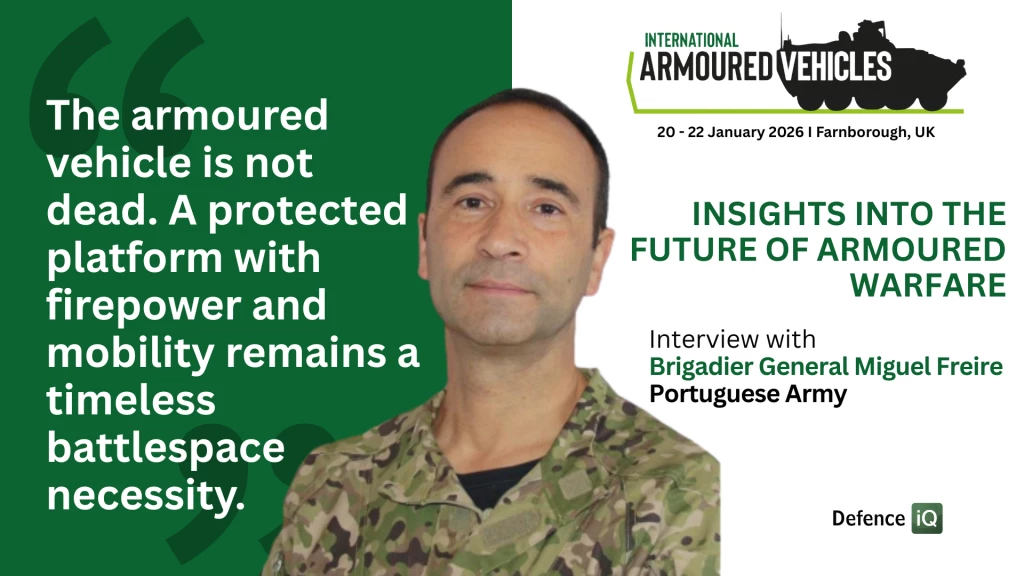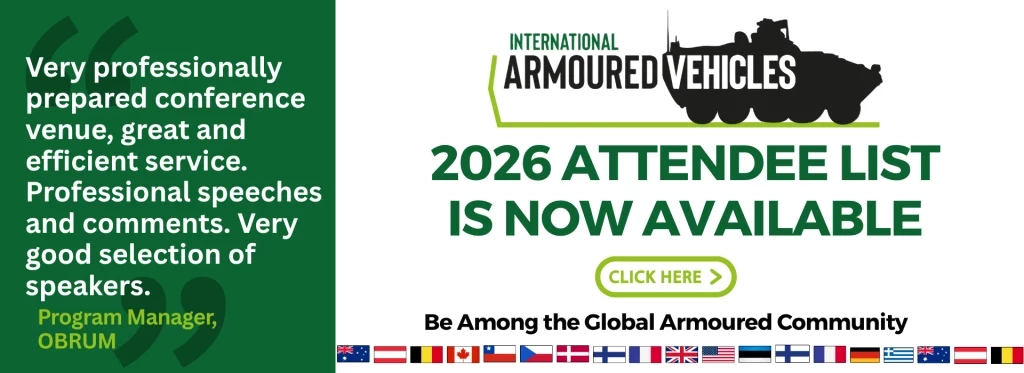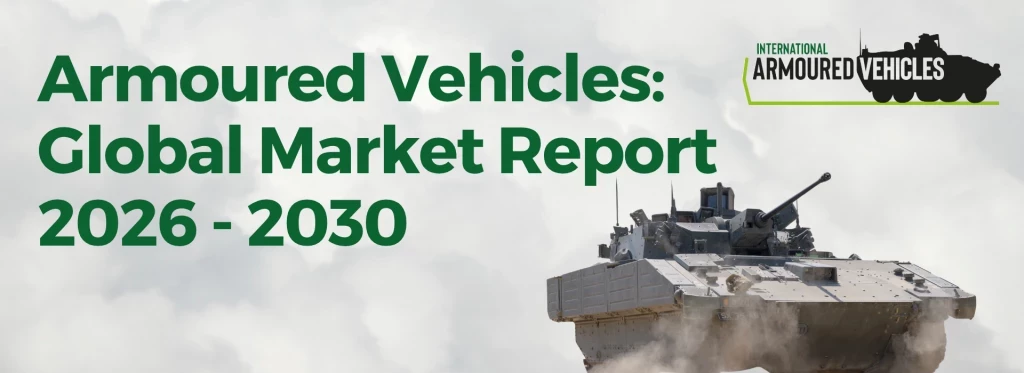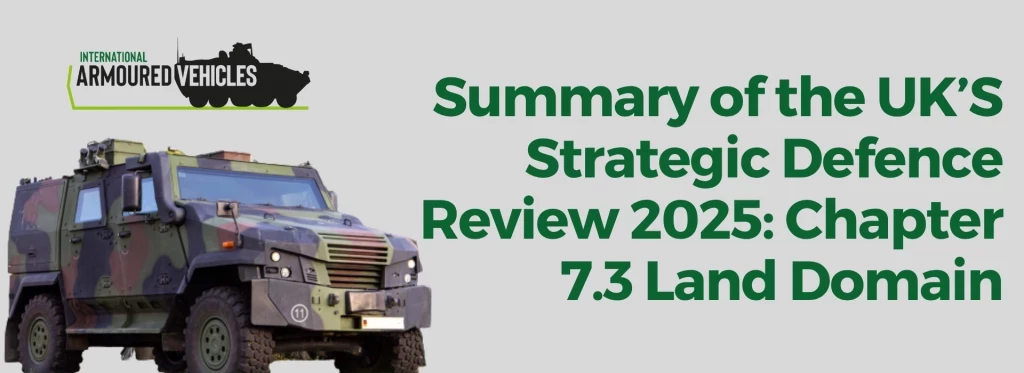Andrew Jankel reveals secrets to success in competitive armoured vehicle market
Add bookmarkAndrew Jankel [left] with Foreign (and former Defence) Secretary Philip Hammond at the company's base in Surrey
This article first appeared in Issue 2 of Defence Industry Bulletin, a quarterly magazine designed to give you the latest updates and insight from the global defence and security industry. Access to Defence Industry Bulletin comes as part of Defence IQ’s Premium Membership package, which includes exclusive discounts to all conferences and free presentation downloads in the B2B shop. Issue 3 of DIB is now available to download - find out more here.
-------------------------------------------------------------------------------------------------------------------------------------------------------
Jankel is a UK-based armoured vehicle specialist with operations in the US and Jordan, where it has a joint venture with the King Abdullah II Design and Development Bureau (KADDB). It was founded in 1955 by Robert Jankel, who built a successful business out of up-armouring limousines for VIPs. The company now provides armour protection solutions and blast attenuating seats for governments and militaries around the world.
Defence Industry Bulletin recently caught up with Andrew Jankel, son to Robert and now the company’s chairman, at Eurosatory to understand how the firm is surviving in the current climate, what he thinks the future holds for armoured vehicle innovations and if the "new normal" for defence procurement is here to stay.
Jankel (the company, not the man) has a large stand at Eurosatory. Jankel has various armour technologies on show, space doesn’t feel like it’s a premium and it has a private meeting room. My first impressions: This plucky UK SME is investing heavily in its presence at the expo and is confident of its return on investment during a difficult time in a competitive industry.
We sit down in the private meeting room and Mr Jankel tells me it’s a time of significant change in the defence industry. He says it’s a high-risk business and the rewards are there but when the large programmes dry up you have to either adapt to survive, or outlast the competition in a cash flow war of attrition.
"We have to look at a sensible way of managing the business over the next ten years," said Mr Jankel.
"When you look at the US as an example, the last major downturn lasted well over a decade into the early 90s, and I think we’re going to see the same thing in the defence industry today, particularly in Europe and North America."
How will Jankel negate the downturn in defence contracts and investment? Over the next few years how will the company’s defence and commercial work be distributed across the business?
"It’s a good question. Probably one third commercial and two thirds military in respect to our turnover. Over the next couple of years we’re targeting a 50% increase in turnover but the vast majority of that will be from commercial rather than defence. We don’t see defence expanding but what we do see – at least in the areas we’re in – is a sustainable, solid business.
We don’t see a business that will necessarily grow over the next few years but there will always be peaks and troughs with defence programmes but you can’t account for them. We’ll always maintain our core capability in defence and expand that as and when these unique programmes come up."
So the company is looking to expand its commercial business, which is fitting because it’s got pedigree there – "it’s like going back to the future for us," said Mr Jankel.
"My father always loved speed; he was a runner-up British Saloon Car Champion, believe it or not in a Ford Anglia – the car they used in Harry Potter, which my kids find very funny that their Grandfather used to race one of those – that was heavily modified."
Robert established his first car company in the 1970s, which he called Panther in a playful nod to Jaguar, and from that Jankel’s up-armouring business was born. The design consultancy, as it was then, worked on a range of projects, including the homologation of the Mini to Japan and built rally cars for Volvo – "We even did the Vauxhall Cavalier convertible, do you remember that?" – but the key project was building limousines based on the Mercedes-Benz chassis.
Jankel has a long history of designing and building specialist vehicles for VIPs and specialist forces – it provides a number of vehicles to police forces, such as the Guardian to the UK police – so its chairman is confident it can win business on the commercial side to maintain the impressive growth it’s seen over the last decade.
Jankel, like many companies in the industry, benefitted from the urgent operational requirements (UORs) that came about from operations in Iraq and Afghanistan. How are things different today?
"We were very heavily involved [with providing protection solutions for the government] at that time but those days are gone. Those were unique days in the defence industry and anyone who thinks those days are going to be at all sustainable are going to have a nasty surprise.
"An important factor about doing business in the defence industry today is that you have to have cash in the bank. You have to have emergency funds and breathing space because you have to be able to survive the drawn-out procurement process. We have staff and overheads regardless of what work goes out the door so you need that financial cushion to remain in a strong position when the government does decide to award contracts."
What’s the solution?
"Where we are now is the "new normal," which is actually still better than it was ten or twelve years ago but people have very short memories. The new normal is where you have longer-term programmes and traditional bidding processes but there’s still business to be won. We see projects alive and kicking, particularly in R&D, but not in the traditional European and North American markets – I’m talking about the Middle East and Asia."
Companies in the defence industry must target new markets with an agile business model. For Mr Jankel, having three operations in different parts of the world has been fundamental to the company’s growth.
"Long-term contracts where you maintain the through-life support of a fleet of vehicles usually go to the larger defence primes; as an SME in the industry it can be hand-to-mouth. We have three operations in different geographies, which is one of the ways we derisk the business. We have layers of different products and make sure that we don’t just have one product for one customer – we’ve suffered from that in the past and had our fingers burned. In today’s industry you have to have a robust portfolio of different products in multiple geographic areas.
"Three years ago our US business was doing phenomenally well and was stronger than the UK or Jordan, but over the course of the last 18 months things have swapped and it’s Jordan that’s really busy right now, mainly because there’s a lot of internal security work there and we’re doing a lot of up-armouring for the UN and other customers in the region. At the moment we’re sitting on our hands in the US waiting for the government to sign the contract. The industry at the moment is moving so fast in different directions you have to stay incredibly nimble."
As we sat and talked about the company’s US business I began thinking about how to politely phrase the question: Why, as a UK SME living hand-to-mouth, did you think moving into the most competitive market in the world at a very difficult time was a good idea? Are you mad?
It may be something Mr Jankel’s been asked before; he addressed the question before I could get chance.
"Most people said, ‘You’re mad going into the most competitive defence market in the world at a very difficult time for the industry,’ but we had enough self-confidence as a business to know we had appealing differentiators," Mr Jankel clarified.
"We started our US operation about six years ago, which was set up when we saw the European market beginning to reach saturation point. We’d done a lot of work on large programmes in Europe, and particularly in the UK where we designed the protection system on Supacat’s Jackel vehicle and learned a lot about the blast and ballistic requirements, but we saw that there were only a certain number of vehicles that the British Army was going to buy. We’d grown the business considerably up to that point and then we asked how we were going to continue that growth – the obvious thing was to go the US."
How did you make it a successful business in the US against the odds? What were your differentiators?
"We did our own research and development," said Mr Jankel, simply. "We do an awful lot of the development and testing of our products … whereas in the US what tended to happen was that a company designs the technology but then the US government would either pay for or do the testing themselves, meaning quite often the company wouldn’t fully understand the depth of that technology.
"The results tended to be kept behind closed doors. So when we were able to talk to the project managers with the full understanding of the product that we had, it was a bit of a revelation to them. We went to the US with a more acute understanding of their problem; the deep knowledge we had about our products helped the PM’s solve them."
Jankel has had a lot of success over the last decade with step-change technology innovations that it’s brought to market. Where does Mr Jankel think the market is heading in terms of new technology? Will there be a new wave of invention for ballistic protection and armoured vehicle design?
"Do I think there are going to be game-changing new developments? No, I think innovation is going to slow dramatically. I think there will be certain projects that push things forward but I see innovation in the industry slowing down because companies are loath to put money into development if there’s no programmes to win. There’s a lot of interesting technologies out there – some of it more mature than others – but I suspect there won’t be any significant revelations for the next few years unless there’s a requirement for it. Today, it’s about optimising the technology we have at the right price. Price is the key driver now, not technology."
Our time is up in the private meeting room. Just one more question. I know his father Robert was a speed demon. I know the Jankel family business was originally in the clothing and fashion industry. But what about Andrew? What could he be – what would he want to be – if he wasn’t the chairman of an armoured vehicle specialist?
"Occasionally I ask myself that question. I’m very lucky – I wake up everyday and I love what I do. I love the people and team that I work with and I love what we’re doing.
"We focus on protection – we don’t make weapons – we focus on protection and that’s incredibly rewarding. I wake up every day and know that we’re making things to better protect people – and I know that there are people walking around today that wouldn’t be if we hadn’t innovated in the way that we have – so I couldn’t ask for a better job."
It makes sense. After all, at Jankel they say, "Protection is Everything."
[eventpdf]






















